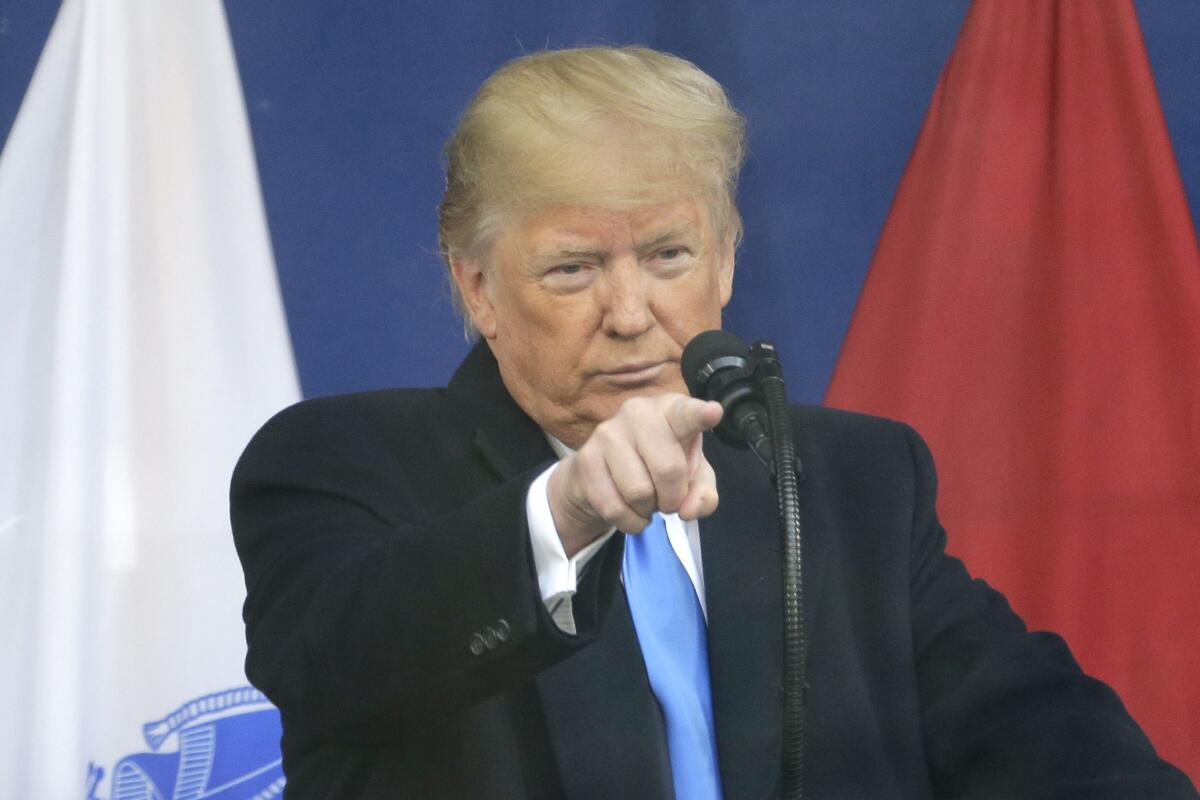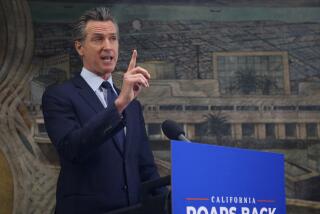California Democrats handed the GOP a win with law to force Trump to release tax returns

Politicians sometimes get too cute and make fools of themselves.
Sacramento Democrats got too cute with President Trump over his taxes and were loudly booed last week by the California Supreme Court.
Thank you, justices. They deserved it.
Democratic legislators passed and Gov. Gavin Newsom signed a “gotcha” bill in August intended to force Trump — and any presidential candidate — to publicly release his income tax returns. A candidate who refused would be barred from the California presidential primary ballot.
Not so fast, said the state’s highest court. It ruled unanimously that the law violated California’s Constitution.
The Legislature didn’t even consider the state Constitution, the court noted. A 1972 constitutional amendment approved by voters clearly made the primary ballot accessible to all “recognized” presidential candidates.
The Democrats’ law also violated the U.S. Constitution, a federal judge ruled earlier. For one thing, it conflicted with the qualifications clause in Article 2, which states that a president simply must be a natural born citizen who has lived in the country 14 years and be at least 35. Nothing about releasing tax returns.
California Secretary of State Alex Padilla, a Democrat, filed an appeal, but dropped it after the state court ruled against the law.
This is not about whether Trump should release his federal tax returns. The six presidents before him did, but he has refused. Rather, it’s about Democrats enacting a blatantly unconstitutional law with a straight face for purely political reasons.
It’s about arrogance and hypocrisy.
Democrats rationalized that voters should be provided a candidate’s financial information so they’ll know about any potential conflicts of interest.
The state “has a strong interest in ensuring that its voters make informed, educated choices,” Newsom wrote in a bill signing message. “States have a legal and moral duty to do everything in their power to ensure leaders seeking the highest offices meet minimal standards and restore public confidence.”
Please! “Moral duty”? Does that mean Sacramento Democrats are going to run only honest campaign ads starting in 2020? And no more misleading official titles and summaries on ballot propositions?
To Newsom’s credit, he insisted that the bill also cover gubernatorial candidates. That part of the law remains.
Newsom disclosed his taxes when he ran for governor last year. Former Gov. Jerry Brown did not when he ran in 2010 and 2014. In 2017, he vetoed a similar bill, warning of a “slippery slope.”
“What would be next?” Brown asked. “Five years of health records? A certified birth certificate? High school report cards?”
Democrats never squawked about Brown not releasing his taxes. That’s hypocrisy.
Also hypocritical is that if legislators were really sincere about shining a light on candidates’ personal finances, they would have included themselves in the tax-disclosing requirement.
And if they’re serious about increasing transparency, there’s a simple way to do it under existing law. They could strengthen the weak Statement of Economic Interest form that state and local candidates must fill out. Presidential and congressional candidates have their own feeble forms.
Legislators could require more specificity about a candidate’s assets, such as stocks, business ownerships and non-government income. Now, the information asked for is so vague it’s practically useless.
For example, a candidate must check off whether his stock is worth between $10,000 and $100,000, or $100,000 to $1 million or over $1 million. And the form is pockmarked with loopholes. Exempt from disclosure are government bonds, money market accounts, credit union shares and commodities.
There’s plenty of room in those forms to hide potential conflicts of interest.
“The categories are so broad it’s hard to know exactly what people’s interests and potential conflicts are,” says Ann Ravel, former chairwoman of the watchdog state Fair Political Practices Commission and an ex-member of the Federal Election Commission. “It’s crazy.”
Ravel, a Democrat, is running for the state Senate in San Jose.
Dan Schnur, a former FPPC chairman who teaches political communication at USC and UC Berkeley, says: “If legislators are truly serious about expanding disclosure and not just slapping around Donald Trump, they could turn the statements of economic interest into something much more meaningful.
“They could require candidates to not just check a box, but enter a real dollar figure.”
Jessica Levinson, former president of the Los Angeles Ethics Commission who teaches political law at Loyola Law School, says presidential candidates should voluntarily release their taxes, but not be forced to.
“I didn’t think it was good law,” she says of the tossed-out legislation. Disclosing taxes “is good policy, but not every good policy should be legally mandated.
“There are so many real fights to have with this administration. Why would you have this one?”
Democrats felt there was nothing to lose. Even if the law was quashed, beating up Trump is always popular in California, they theorized.
And if courts upheld the law and Trump was barred from the ballot, it would suppress the GOP voter turnout, helping Democrats.
But there must be some cost to looking juvenile and petty.
Democrats also handed Republicans a fat target.
The Democrats’ priorities “are out of touch with California’s needs,” Senate Republican leader Shannon Grove of Bakersfield said. “There are real issues that need to be addressed, such as keeping the power on for families, making housing affordable and tackling the out-of-control homeless crisis.”
Chalk up a rare victory for the GOP. It should teach Democrats a lesson, but probably won’t.
More to Read
Start your day right
Sign up for Essential California for news, features and recommendations from the L.A. Times and beyond in your inbox six days a week.
You may occasionally receive promotional content from the Los Angeles Times.







